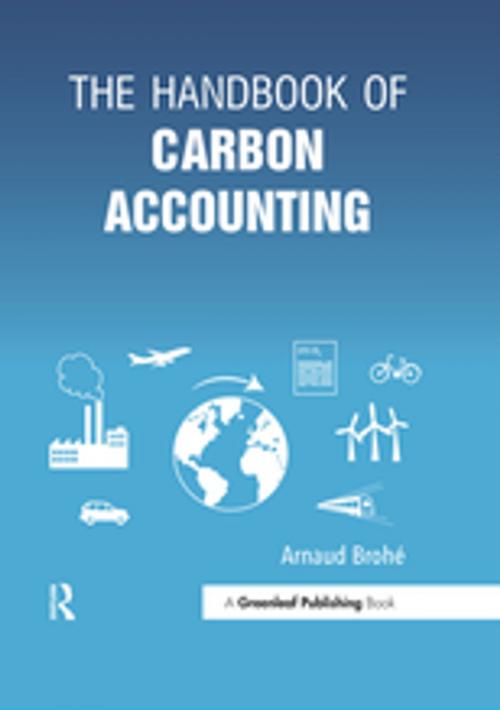The Handbook of Carbon Accounting
Business & Finance, Business Reference, Business Ethics, Accounting| Author: | Arnaud Brohé | ISBN: | 9781351285148 |
| Publisher: | Taylor and Francis | Publication: | September 8, 2017 |
| Imprint: | Routledge | Language: | English |
| Author: | Arnaud Brohé |
| ISBN: | 9781351285148 |
| Publisher: | Taylor and Francis |
| Publication: | September 8, 2017 |
| Imprint: | Routledge |
| Language: | English |
Carbon Accounting is a vital tool in enabling organisations to measure and report on their greenhouse gas emissions. As the need to respond to the causes and impacts of climate change becomes increasingly urgent, emissions calculations and inventories are a vital first step towards mastering climatic risk. The Handbook of Carbon Accounting offers an accessible and comprehensive presentation of the discipline. The book examines the different methods or instruments implemented by countries and companies – such as carbon taxation, carbon markets and voluntary offsetting – while revealing how these stem not simply from the aim of reducing emissions for the lowest cost, but more as a compromise between divergent interests and individual world views. It also explores the historical context of the emergence of carbon accounting, assessing its evolution since the Rio Conference in 1992 and the signing of the Kyoto Protocol in 1997, to the latest Conference of Parties in 2015 in Paris.The book concludes with a very practical guide to calculate, reduce, offset and disclose your carbon footprint.Like other management tools, carbon accounting may not be an exact science, but its contribution has never been more important. The Handbook of Carbon Accounting is a vital educational resource that will help readers – including those with no prior knowledge of the field – to understand carbon flows and stocks and to take action. It forms part of a movement that heralds the start of a new economic era in which the search for prosperity can live in harmony with the environment.
Carbon Accounting is a vital tool in enabling organisations to measure and report on their greenhouse gas emissions. As the need to respond to the causes and impacts of climate change becomes increasingly urgent, emissions calculations and inventories are a vital first step towards mastering climatic risk. The Handbook of Carbon Accounting offers an accessible and comprehensive presentation of the discipline. The book examines the different methods or instruments implemented by countries and companies – such as carbon taxation, carbon markets and voluntary offsetting – while revealing how these stem not simply from the aim of reducing emissions for the lowest cost, but more as a compromise between divergent interests and individual world views. It also explores the historical context of the emergence of carbon accounting, assessing its evolution since the Rio Conference in 1992 and the signing of the Kyoto Protocol in 1997, to the latest Conference of Parties in 2015 in Paris.The book concludes with a very practical guide to calculate, reduce, offset and disclose your carbon footprint.Like other management tools, carbon accounting may not be an exact science, but its contribution has never been more important. The Handbook of Carbon Accounting is a vital educational resource that will help readers – including those with no prior knowledge of the field – to understand carbon flows and stocks and to take action. It forms part of a movement that heralds the start of a new economic era in which the search for prosperity can live in harmony with the environment.















